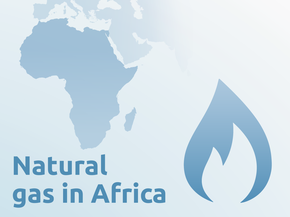Country summary
Overview
NOTE: This update covers only the Climate Action Tracker's analysis of Nigeria's net zero target.
Nigeria shows the dilemma, that a country with limited contribution to climate change in the past also has to abstain from developing and exploiting fossil fuel resources, if the 1.5°C limit is to be kept. Nigeria’s energy sector plans are at odds with the Paris Agreement’s 1.5˚C limit. Nigeria wants to expand its domestic, regional and export gas markets. According to the IEA, no new oilfield development is needed if we are serious about the world reaching net zero emissions in 2050. Nevertheless, according to our method based on a fair share contribution and from a cost-efficient perspective of Nigeria’s targets and policies, we rate it “Almost sufficient”.
Nigeria also wants to revive its coal sector. While we see no evidence of this actually happening, any expansion into coal power would not be compatible with the Paris Agreement as coal power generation across Africa would need to be phased out by 2034. Both policies run the risk of stranded assets.
Nigeria has an ambitious 2030 renewable energy target, but implementation has been slow and it is not on track to meet this target. Its pandemic recovery package did include support for solar home systems, but much more action is needed here. Nigeria has one of the least reliable electricity grids and its citizens spend billions per year on generators.
As with most African countries, the CAT’s fair share rating means Nigeria will need considerable international support to decarbonise its economy. Nigeria updated its NDC targets in July 2021, in which it put forward strong targets. Now it needs to focus on implementing the policies to achieve these targets, for which it will require international support.
The CAT rates Nigeria’s climate targets and policies as “Almost sufficient”. The “Almost sufficient” rating indicates that Nigeria’s climate commitments are not yet consistent with limiting warming to 1.5°C but could be with moderate improvements.
Nigeria’s unconditional target meets its fair-share contribution to limit warming to 1.5°C; however, its conditional target is consistent with 2°C of warming when compared to modelled domestic pathways.
While Nigeria’s policies and action are 1.5°C compatible when compared to its fair share contribution, they are not on track when compared to modelled domestic pathways. Nigeria needs additional support to implement additional policies and to strengthen and meet its conditional target.
The CAT estimates that Nigeria’s greenhouse gas emissions would reach 25-45% above 2010 levels excluding LULUCF in 2030 under current policies and including the impact of COVID-19. In June 2021, Nigeria approved a revised National Climate Change Policy that outlines mitigation and adaptation priorities.
In response to COVID-19, Nigeria adopted its short-term Economic Sustainability Plan that includes positive climate initiatives such as the installing solar power on 5 million homes, though also includes a national gas expansion programme. Globally, unabated natural gas in power generation needs to peak before 2030 and be halved by 2040 below 2010 levels.
The government recently approved the Petroleum Industry Bill to reform the oil and gas sector and attract investment in the sector. While expected improvements in transparency are welcome, new investment into oil and gas infrastructure is not in line with the 1.5°C temperature limit and will increase the risk of stranded assets. According to the IEA, no new oilfield development is needed if we are serious about the world reaching net zero emissions in 2050.
Nigeria also has plans to expand its domestic coal production. The draft 2018 National Energy Policy seeks to increase coal in the energy supply; however, there have not been signs of implementation. We therefore do not account for increased coal use in our current policies projections. To be compatible with the Paris Agreement, coal power generation across Africa would need to be phased out by 2034.
Nigeria’s current policies are rated 1.5˚C compatible when compared to its fair-share contribution. The “1.5˚C compatible” rating indicates that Nigeria’s climate policies and action are consistent with limiting warming to 1.5°C. Nigeria’s climate policies and action do not require other countries to make comparably deeper reductions.
While Nigeria’s policies and action are 1.5˚C compatible in the fair share space, they do not put Nigeria on track to meet either of its targets. It is also off track when compared with modelled domestic pathways. Nigeria will need to implement additional policies with its own resources to meet its unconditional target, but will also need international support to implement policies in line with full decarbonisation to meet and exceed its conditional target.
Key steps to reducing the gap between current policies and Nigeria’s NDC targets include progressing towards and ramping up its renewable energy target and halting the expansion of natural gas.
In its NDC update, Nigeria has committed to reducing emissions by 47% below BAU by 2030, conditional on international support. This is equivalent to an emissions level 4-26% below 2010 levels excluding LULUCF by 2030. While this is a strong conditional target, Nigeria will need to strengthen its policies to make sure it has the enabling conditions in place to meet the target, in addition to receiving international support.
The CAT rates Nigeria’s 2030 conditional target as “Almost sufficient,” a rating that indicates that Nigeria’s internationally supported target in 2030 is not yet consistent with the 1.5°C temperature limit but could be, with moderate improvements. If all countries were to follow Nigeria’s approach, warming could be held below—but not well below—2°C.
Nigeria’s conditional target spans the CAT’s ‘Almost sufficient’ and 1.5°C compatible ratings. The large target range is due to uncertainty around the extent to which Nigeria plans to rely on the land sector in meeting its target. Further clarity from Nigeria on this may result in a 1.5°C compatible target.
In its NDC update, Nigeria has recommitted to unconditionally reducing emissions 20% below BAU by 2030. This is equivalent to an emissions level of 12-21% above 2010 levels (excl. LULUCF) by 2030. The CAT rates Nigeria’s 2030 unconditional target as 1.5°C compatible.
The “1.5°C compatible” rating indicates that Nigeria’s fair share target is consistent with limiting warming to 1.5°C. Nigeria’s fair share target does not require other countries to make comparably deeper reductions or greater effort, and is in the most stringent part of its Fair Share range.
The fair share literature for Nigeria is sparse and some equity categories have few data points. As a result, the upper bound of Nigeria’s fair share range is dominated by a handful of studies. This high range is not reflective of the majority of the literature, which indicates more stringent emission reductions. Future equity studies may help to improve the fair share analysis for Nigeria.
In November 2021, Nigeria passed the Climate Change Act that seeks to achieve low greenhouse gas emission, and green and sustainable growth by providing the framework to set a target to reach net zero between 2050 and 2070. The Act includes provisions to adopt National Climate Change Action Plans in five-year cycles. The Action Plans, produced by the National Council on Climate Change established by the Act, are meant to ensure national emissions are consistent with a carbon budget. The carbon budgets are to be set by the federal ministries responsible for the environment and national planning and periodically reviewed.
It is unclear if the government is on track to achieve the initial deadlines set in the Act. Under the Act, the first Action Plan and the pilot carbon budget should be published by November 2022; however, the Director General of the National Council on Climate Change, who is expected to drive implementation of the Act, was only appointed in July 2022.
At COP26, President Buhari further committed to net zero emissions by 2060, which would be in line with the Climate Change Act. Nigeria’s Energy Transition Plan, released in August 2022, was developed to serve as the pathway towards achieving the 2060 net zero target. Nigeria has also launched a long-term vision to 2050, which is expected to inform the development of their Long-Term Low Emission Development Strategy. As the Act only sets the framework for adopting a net zero GHG target between 2050 and 2070, the final net zero target could improve on several elements. In particular, the target should clarify emissions coverage and the role of carbon removals in achieving the target. We evaluate the target as “Average”.
The full net zero target analysis can be found here.
Further analysis
Country-related publications
Stay informed
Subscribe to our newsletter

